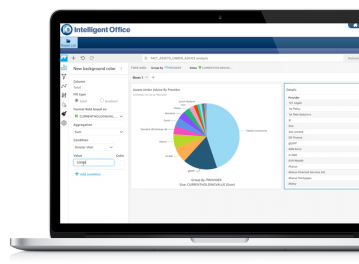In the wake of my critique on the “Australia, First” approach championed by Iress’ former management, a fascinating array of reactions have emerged, highlighting the stark contrast between the visions of Iress’ Australian and UK leadership teams. As Australia reorients its focus inward, shifting attention away from international ventures to concentrate on its most lucrative market, this strategic pivot seems astute, particularly with the looming challenge of Intelliflo’s successful entry into the Australian arena
The Australian message is very much that the international businesses are no longer the priority, and the company will be doubling down on its most successful market. Indeed, the Investor Update clearly shows the international business being move from the Core to the “Managed for value” part of the portfolio. This is probably wise given the challenge of Intelliflo entering the Australian market, which from the media I have seen appears to have been well received.
The Iress market share in Australia is so dominant that I understand no competitor has even a 10% market share. Intelliflo, represent a level of competition Iress will not have faced previously in their domestic environment. Backed by the enormous resources of Invesco, and pushing simultaneously into both the US and Australia, Intelliflo are clearly a force to be reckoned with. This makes it important for Iress to defend their traditional stronghold.
Conversely liberating the international teams to take control of their own destiny, removes huge bureaucratic challenges where key decisions were taken in Australia making it difficult to understand UK nuances.
I have a detailed understanding of Avelo, the main UK business Iress bought. Prior to the acquisition I worked with the management teams of all three of the core components that were acquired The Exchange, 1st Software and Trigold (previously IFonline) early in their creation.
When Avelo, was bought each of the above was the UK market leader in their areas of operation. In the interim, The Exchange protection sourcing system, which was a clear market leader, although it had been used as a cash-cow by the Avelo management and had been starved of necessary investment. Now it has now fallen to at least second behind iPipeline, if not third behind Pacific Re owned UnderwriteMe. Right now, Pacific Re are putting a major push into UnderwriteMe so while there is scope to grow in the protection portal space, it may need significant capital or some other way to transform that business,
The now shuttered Adviser Office was, at the time of the acquisition, significantly the most popular/successful practice management system in the UK, although there have been several attempts at delivering a replacement system. The Adviser Office had a market share of around 30%+ whereas today Iress has 9% share for Xplan compared to Intelliflo at 46%. In fairness, Iress have continued to offer Adviser Office.
The mortgage market was more complicated as the main competitor to Trigold, Mortgage Brain was and still is owned by six of the seventh largest mortgage lenders in the UK. That said at the time of the acquisition, Trigold was certainly the most popular system with advisers. I don’t have market share numbers for the mortgage sourcing element. However, in recent years Twenty7tec have made significant inroads across the market, which must dilute the market share of the previous duopoly.
It’s pointless acquiring international businesses and then forcing them to deploy technology that wasn’t properly localised for their jurisdictions. This has improved more recently but was a major reason behind the decline in market share of previously market leading propositions.
I vividly recall a presentation post-COVID, to pretty much all the AdviceTech analysts who matter in the UK, showing some excellent new technology. Unfortunately, all the actual currencies were shown in AUS$. That sent a very negative message that a product hasn’t been properly localised.
The new structure should deliver greater efficiency for both the Australian and UK businesses. The UK business has huge scope for improvement, but it’s only fair to point out the size of the challenge. This recent article on the subject in Australian Financial Review is certainly worth reading.
Several people have suggested to me that at some point, there will probably need to be a major capital injection into the UK entity to enable the level of transformation necessary to restore these businesses to their former strengths.
The new structure is far more appropriate for the domestic and international Iress assets. The challenge now is to deliver on the new strategy.













